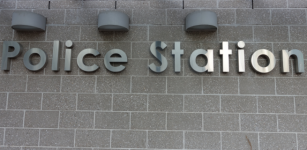What Are My Rights At The Police Station?

If you are arrested and taken to a police station, it is important that you are aware of your rights.
Contrary to popular belief, the police are not just entitled to do whatever they want when they arrest a suspect.
There are strict codes of conduct that police officers are required to abide by, and if they breach the regulations it can lead to any charges made against you being dropped.
How does the arrest process work in NSW?
In NSW, police can arrest you if they suspect ‘on reasonable grounds’ that you have committed an offence.
They are not legally allowed to arrest you if they don’t have reasonable grounds to suspect that you have done something illegal, or if they just want to ask you questions about a crime that you weren’t directly involved in.
Once police arrest you, they will take you to the police station and question you.
At the end of this process, they will decide whether to charge you.
If they do charge you, you will remain in custody unless you are granted bail.
What should I do if I am arrested and taken to the police station?
If you have been arrested, you should contact a top criminal lawyer as soon as possible.
Avoid answering questions or making any statements to police until you have obtained legal advice.
If you give a rushed answer to questions, or you feel under pressure, you may inadvertently say something that is used against you later on.
Say as little as possible until you have spoken with your defence lawyer.
What are my rights at the police station?
You have a number of rights that you should be aware of in the event that you are arrested. Here are some of the most important things to know about what the police can and can’t do at the police station:
- You do not have to answer questions except in a few limited circumstances. You have the right to remain silent, and it is highly advisable that you don’t say anything until you have consulted a lawyer.
- Police can’t make you sign written statements or any other documents, and it is best to wait until you have spoken to a lawyer before you sign anything or make a statement. The only exception to this is signing your bail application if bail is granted.
- Police are only allowed to detain you for four hours before they have to either charge you with an offence, or let you go. If they want to question you further, they can apply to a magistrate or justice of the peace for permission to detain you for another four hours.
- If police refuse to give you bail, they are required to take you to the nearest court as soon as is practicably possible, so that you can apply to the magistrate for bail.
- Police are allowed to search you if they have reasonable grounds to believe that you are concealing a prohibited item, such as drugs, about your person.
If you have recently been arrested and taken to a police station for questioning and you believe that police acted inappropriately, or did not allow you the rights that you are legally entitled to, it is a good idea to speak to a criminal defence lawyer as soon as possible.
In cases where the police acted inappropriately, your lawyer may be able to apply for any charges made against you to be withdrawn, and help you make an official complaint if necessary.






